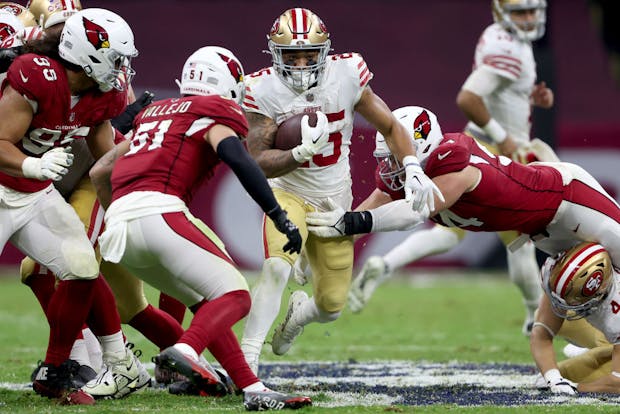
While the focus for leagues and clubs was once simply to keep fans flowing through the turnstiles, monetising those people in 2023 is a far more complex and multi-faceted challenge.
On a positive note, sports have more tools than ever at their fingertips to engage their fans. However, this is set against a backdrop of an increasingly competitive battle for time and attention.
Last month, we launched the Genius Marketing Suite, an all-in-one fan engagement engine, and we are working with dozens of rights-holders to help them reach, engage and monetise their audiences.
Here is our three-step guide for sports rights holders to monetise their fans more effectively:
Step 1: Invest in your owned and operated properties
Sports fans have never had access to more content in more places. From highlights to match centres, behind-the-scenes videos and interviews, fans are provided with 24-7 content before, during and after games to meet the never-ending demand for sports content.
With third parties increasingly satisfying fans’ content demands, leagues, clubs and federations are losing ownership of their audience’s digital engagement. The less time a fan spends on a league or club’s digital properties, the less valuable they are to that rights-holder or their sponsors.

Taking ownership of the fan journey starts with investing in their owned and operated platforms, particularly their web and app properties.
To build consistent touchpoints with fans on their platforms, a growing number of sports are turning to gamified interactive products, such as fantasy and prediction games, digital collectibles and the gamification of video content.
These integrated solutions give fans a reason to keep returning to a league or club’s owned-and-operated properties by giving them the chance to test their knowledge, compete against friends and fans worldwide, and try to win prizes. This drives digital retention and loyalty, creating a greater engaged set of known fans that can be eventually monetised through paid channels.
Last month saw the launch of the updated version of Super Rugby Pacific Tipping, asking fans to predict the winner of every match and compete with friends and rugby fans worldwide. This game has seen a 60-per-cent increase in total users compared to its launch season, enabling Rugby Australia and New Zealand Rugby to bolster their owned and operated platforms, drive fans down their marketing funnels and gain valuable insights into their audience.
Step 2: Build a robust database with zero-party data
We know that sports fans are willing to share their personal data so long as there is a clear value exchange where they are getting something valuable in return. And here, sports have several tools at their disposal to provide genuinely valuable experiences or insights to fans while building up a robust database with zero-party data.
To gain key insights such as a fan’s name, location and contact details, sports have a growing arsenal of solutions including OTT platforms, free-to-play games and more.
Speaking on Genius Sports’ The Fan Engagement Podcast, Jeff Fernandez, vice president of business development and ventures at the New York Jets, outlined how by moving to a paperless, digital ticketing system, the NFL team have grown their database to over eight figures with an email base that is up over 1,000% in the last four years.
Providing fans with smoother, simpler gameday experiences has allowed the Jets to gain “additional information on consumers in a proactive way that allows us to talk to the right person, with the right message at the right time.”
Step 3: Activate personalised marketing and sponsorships
Once sports have put the building blocks in place to own the fan journey, the next steps must have a direct impact on a league or team’s bottom line. This is achieved through sports using the rich audience data they have worked hard to capture in order to power personalised marketing and activate league or team sponsorships.
From running highly targeted merchandise campaigns to retargeting fans with adverts linked to their abandoned ticket baskets, sports can put their audience data to work through personalisation. The same principle applies for sponsors where traditional tactics such as shirt and pitchside branding no longer cut the mustard. All sponsorship spend has to be justified and sports can go to the negotiating table with rich data and insights that create new opportunities.
For example, when creating the 20-Ball Predictor game for The Hundred, we helped the England and Wales Cricket Board to maximise its headline sponsorship with Cazoo. This game saw a 67% increase in registrations ahead of the start of the second season, with Cazoo branding the predictor game and running a competition for a £10,000 car voucher prize.
From a personalisation perspective, the NFL used the Genius Marketing Suite to drive their international audience expansion, delivering 1:1 personalised videos after the 2022 NFL Mexico game. By replacing physical tickets with digital memorabilia, the NFL is extending the game-day experience while putting its audience data to work through a unique piece of personalisation.
These steps are built on engagement, personalisation and data, helping leagues and teams of all sizes to monetise their fans and stay ahead of the latest developments in sports entertainment.